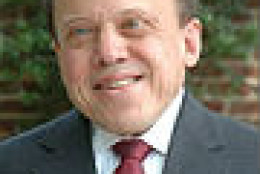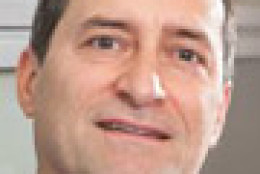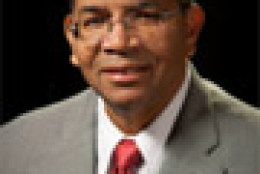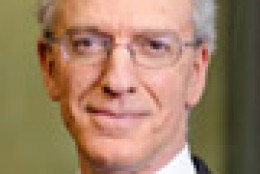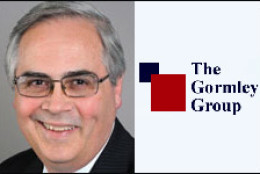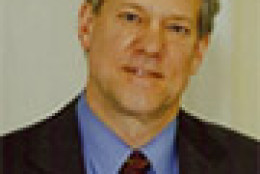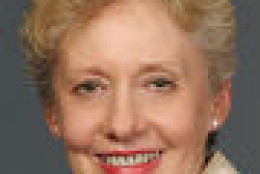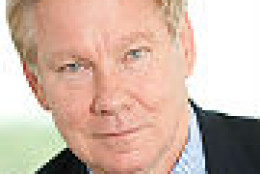Acquisition Policy
-
Strong management is essential to driving successful project and program results. But many executives say their organizations struggle to move ideas into action. As part of our special report, Missing Pieces of Procurement Reform, Federal News Radio offers a best practices for program management.
October 16, 2014 -
Kelvin Wood, the director of TAI, said the organization is investing more in virtual training as travel budgets continue to decrease. Wood said the institute also is focusing on more tailored courses to meet specific needs of its students.
October 16, 2014 -
It's Day Two of our special report The Missing Pieces of Procurement Reform. Today's focus is reforming the system. What improvements can be made to acquisition training and workforce? Does Congress have the knowledge it needs to suggest improvements? What is the state of governmentwide acquisition vehicles, shared services, and bid and award protests? Jon Etherton is president of Etherton and Associates. He worked on several major pieces of acquisition reform in the 1990s when he was a Congressional staffer. On In Depth with Francis Rose, Jon says there is one major difference between reform then and reform now.
October 15, 2014 -
It's Day Two of our special report The Missing Pieces of Procurement Reform. Today's focus: reforming the system. What improvements can be made to acquisition training and workforce? Does Congress have the knowledge it needs to suggest improvements? What is the state of governmentwide acquisition vehicles, shared services, and bid and award protests? Mike Fischetti is executive director of the National Contract Management Association. On In Depth with Francis Rose, he said Congress is listening and knows the need.
October 15, 2014 -
The U.S. Senate Permanent Subcommittee on Investigations asked 31 acquisition experts to weigh in on how the Defense acquisition process can be reformed. Federal News Radio brings you some of the highlights.
October 15, 2014 -
In Federal News Radio's special report, Missing Pieces of Procurement Reform, the Defense Acquisition University, the Federal Acquisition Institute and other experts say a new kind of acquisition worker is needed. One that brings business acumen, understands technology and knows the FAR forward and back. The ever-evolving training regime for federal acquisition workers is no longer just about the hard skills of acquisition.
October 15, 2014 -
If you keep hearing the same thing over and over, is it true? Take certain federal procurement axioms: virtually every procurement nowadays is protested, contracting officers are not allowed to talk to potential bidders, there are too many contracting vehicles out there. Federal News Radio set out to explore these refrains, with the help of two procurement experts.
October 15, 2014 -
Former Defense Acquisition University President Frank Anderson is a veteran when it comes to the theme of procurement reform and people. Anderson says the acquisition workforce in the Defense Department has come a long way. He joined Tom Temin on the Federal Drive to discuss how procurement leadership can foster better outcomes.
October 15, 2014 -
The success of defense acquisition will always depend on the capability of a limited number of people inside and outside government whose resources of time and attention are finite. Increased skill, relevant experiences, and cultural adjustment of the workforce will occur only gradually and only with adequate funding and congressional oversight, says contracting expert Jonathan Etherton.
October 15, 2014 -
NCMA Executive Director Michael Fischetti and Tom Davis, former chairman of the House Oversight and Government Reform Committee, conclude that better leadership will get the acquisition process where it needs to be.
October 15, 2014 -
As part of our special report, The Missing Pieces of Procurement Reform, we examine bid and contract award protests. In the grand scheme of things 1,600 protests don't amount to much stacked next to the one or two million contract actions each year. Former Office of Federal Procurement Policy Administrator Dan Gordon joined Tom Temin on the Federal Drive to share his perspective.
October 15, 2014 -
Bill Gormley, president of the Gormley Group and chairman of the Coalition for Government Procurement gives us his take on a wide variety of government contracting issues. October 14, 2014
October 14, 2014 -
The General Services Administration reviews version four of its Leadership in Energy and Environmental Design green building certification program. It wants to know if the LEED system is actually helping agencies meet federal green building goals. Kevin Kampschroer, federal director of the Office of Federal High Performance Green Buildings and senior climate change adaptation official at GSA, tells In Depth with Francis Rose about sustainable practices any agency can implement.
October 14, 2014 -
Compliance is a bigger part of the acquisition world than ever. Peeling off some layers of compliance, while keeping enough compliance oversight to make sure everyone's doing what they should, could save money for the government and lead to a better outcome for the agencies. Our special report, The Missing Pieces of Procurement Reform, focuses on finding some kind of legislation reform. Marcia Madsen, partner at Mayer Brown and former chairwoman of the Services Acquisition Reform Act panel, tells In Depth with Francis Rose why a lot of the issues members of Congress are talking about today are things the SARA panel looked at in 2006.
October 14, 2014 -
Acquisition reform is one of the most popular subjects on Capitol Hill right now. The likely next chairman of the House Armed Services Committee, Rep. Mac Thornberry (R-Texas), is leading a task force on defense acquisition reform. The Senate Homeland Security and Governmental Affairs Permanent Subcommittee on Investigations just published a collection of essays from acquisition experts on the next steps for reform. Our special report, The Missing Pieces of Procurement Reform, focuses on finding some kind of legislation reform. Tom Davis, director of government relations for Deloitte and former Chairman of the House Oversight and Government Reform Committee, tells In Depth with Francis Rose what's changed since the Services Acquisition Reform Act panel presented its work to his committee eight years ago.
October 14, 2014


